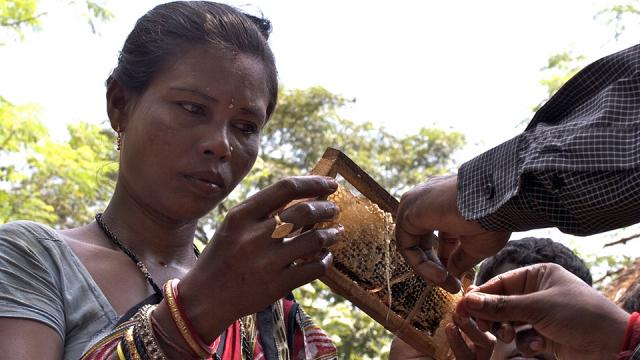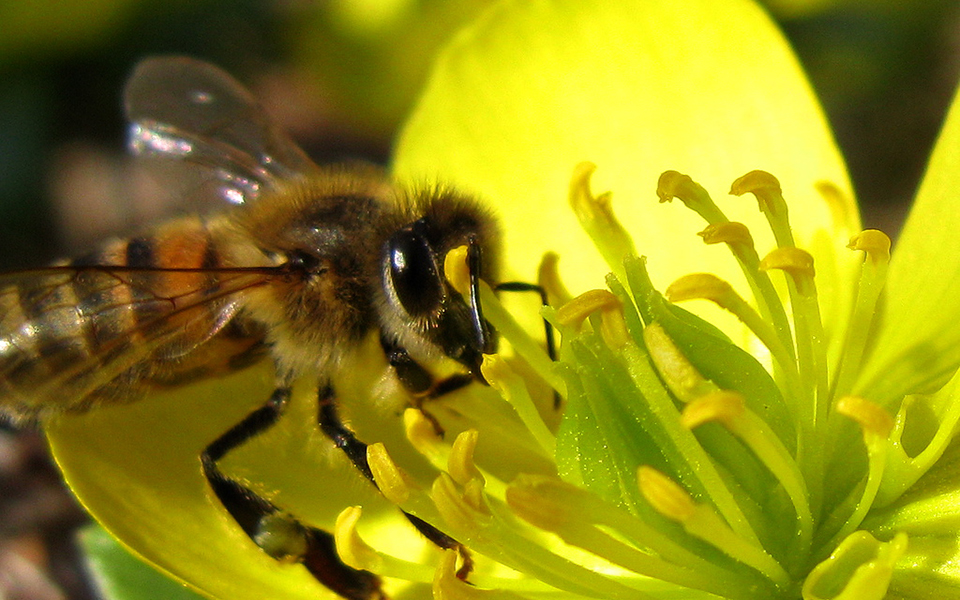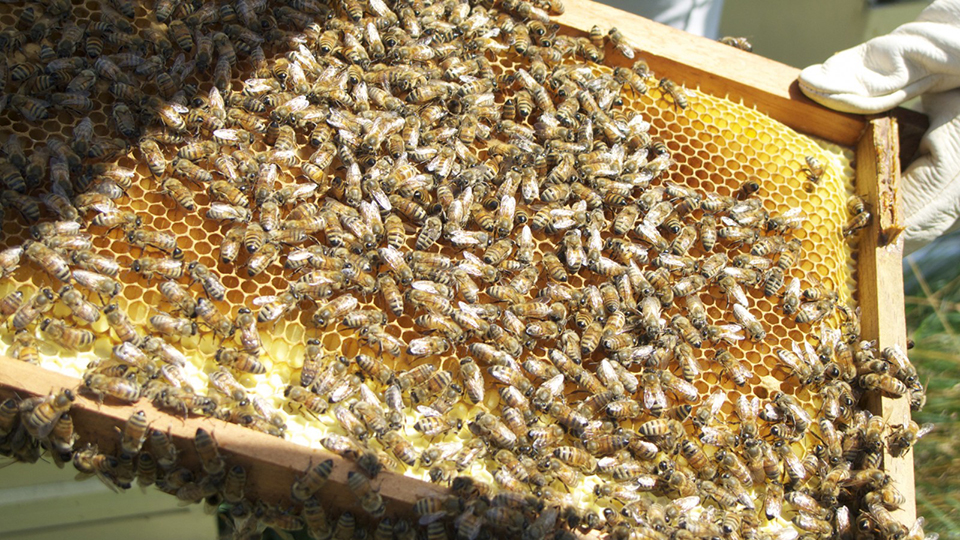
As India's government prepares to make the controversial Biotechnology Regulatory Authority of India (BRAI) bill a law, enhancing the hold that biotech companies like Monsanto have over the nation's food production, the tiny bee may be emerging as a potential savior by offering ways to increase crop yields naturally.
Thanks to efforts by the Mumbai-based organization Under the Mango Tree, bees have been incorporated into the fields of small farmers and food growers in communities in Gujarat, Maharashtra and Madhya Pradesh. Through its Bees for Poverty Reduction program, UTMT is helping farmers increase their incomes and agricultural productivity through India's indigenous honeybee Apis cerana indica.
The program, which is four years old, was conceptualized by UTMT's Vijaya Pastala when she realized that training farmers to keep bee boxes would not just increase crops yields, but also produce honey that could be sold as supplement income. Now, as opposition in India grows against genetically modified and pesticide riddled food, the impact of the project — which was piloted in South Gujarat and Maharashtra in 2009 — couldn't be timelier.
Beekeeping isn’t a new concept in India. Pioneered in the early 1930’s, the practice remained confined to Punjab and Himachal Pradesh until the late 1970s. Sujana Krishnamoorthy, a program leader, works with communities in Gujarat where traditional honey hunting used to take place. “They would squeeze the honey out from the combs killing the bees in the process,” she explains, “but today they know newer techniques that only take the honey out leaving the colony healthy and ready to make new combs.”
Take Somajibhai Magi, a young farmer whose one acre of land would yield him $500 in annual honey production. As a young boy, Magi would often extract honey from combs in the nearby forests. He was never convinced that bees could actually increase production. But a two-day training with UTMT's Bees for Poverty Reduction taught him to keep two boxes near his cucumber patch. Magi's yield increased by five kilos in a year. Now he is ready to invest in more boxes. “The fruit look healthy and are delicious,” he says. He also now works to show other villagers how they can benefit from beekeeping.
The first National Commission on Agriculture in 1976 recognized the important role of the bee in farming, but subsequent Indian policy gave the indigenous bee a stepmother-like treatment, promoting the hybrid Apis mellifera instead. The indigenous Apis cerana indica bee is more suited to the small farmer since it’s naturally available and is a better pollinator. A hardy species, its average honey yield is between six to eight kilograms per colony per year.
In addition, the honey collected from the indigenous species retains its unique and exotic flavors influenced by floral nectar, including areca nut, orange blossom, cardamom and litchi honey.
Manilal Bhai, a farmer in Gujarat, is reaping the benefits. He has 12 bee boxes and from just two of them he has harvested four kilograms of honey. “People pay money in advance for the honey. Its precious money that can be used for investing in farming equipment and seed,” he says.
A recent article on Animal Planet explains, “Bee numbers are dropping as hives disappear and scientists don't yet understand the exact cause — they just know that the bees are in danger and along with them, our food supply as well.” As a response, in the UK the government is looking to implement a national pollinator strategy, lending global significance to the work that groups like UTMT are doing.
A study conducted by UTMT also reveals that important cash crops like cashew and mango showed growth increases of up to 157% and 68%, respectively, due to beekeeping. Other crops that benefited included the pigeon pea, flat beans, chick pea, tomato, banana and papaya.
But it's not just increasing honey production that is important — it's also finding markets so that farmers can sell their product. In this way, too, the organization has made inroads. Formerly, farmers' profits were cut short by middlemen who got their wares to market.
Now, through a buyback arrangement for honey and beeswax — which gets sold to cosmetic and pharmaceutical companies — UTMT is able to pay farmers a premium price directly for what they produce, ensuring market access to nearly 3,000 bee farmers across six states.
Since bee keeping is a relatively private business where a single person can effectively raise a cluster, women too are now looking at this as additional sources of income. GipraDandwal, of Dharampur Taluk in Gujarat, is the only woman beekeeper in her village and is poised to become a "master trainer," helping bring other women into the business.
Last year in February, UTMT hosted India’s first annual National Bee Day at Maharashtra Nature Park in Dharavi.
Now, with beekeeping's popularity growing, and Indian' battle against Monsanto and GM foods growing, bee farmers may become a small but unexpectedly potent weapon.
3 WAYS TO SHOW YOUR SUPPORT
- Log in to post comments















